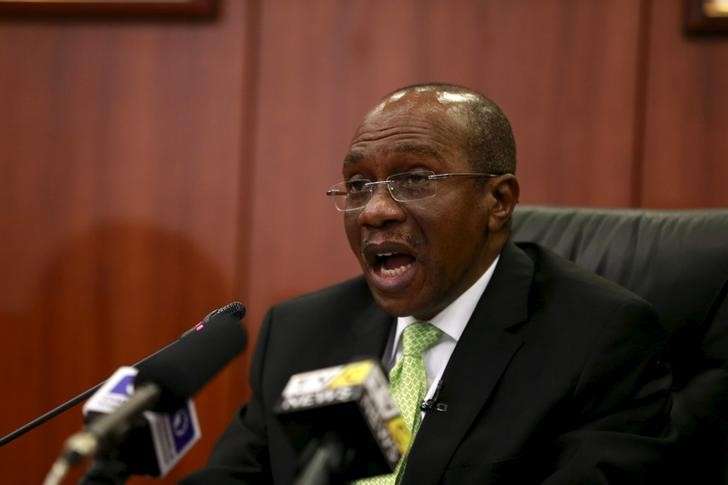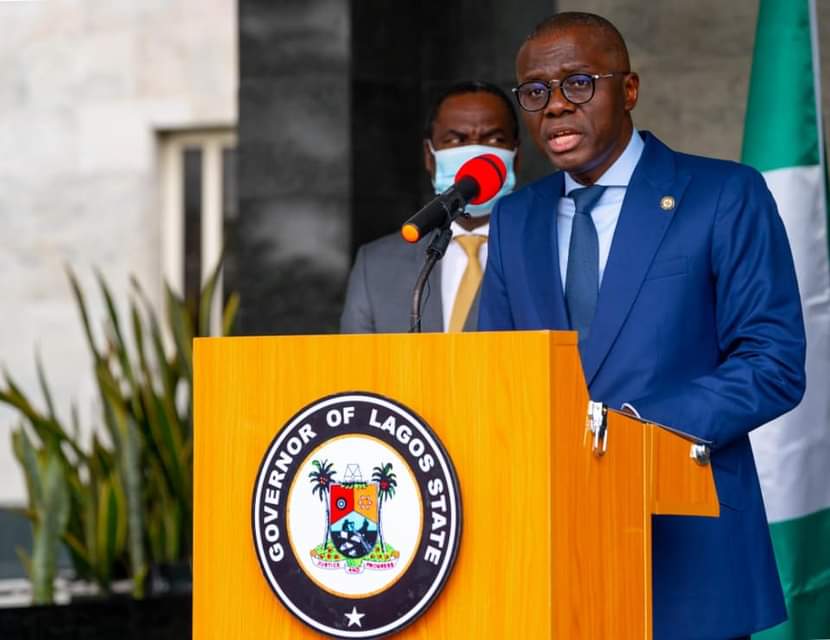Oil
Crude oil sales fetch Nigeria N6trn in 11 months – CBN
LAGOS — The Central Bank of Nigeria, CBN, yesterday, said that Nigeria received N6.24 trillion ($40 billion) as oil revenue from January to November last year.
Meanwhile, the apex bank retained its tight money supply policy, as it left the Monetary Policy Rate, MPR, at 12 per cent.
In a communiqué issued at the Monetary Policy Committee, MPC, of the CBN, yesterday, the apex bank said: “In the first 11 months of 2012, oil receipts totalled US$40.087 billion.”
This, it said, enhanced the stability of the exchange rate and built up of the external reserves.
 It said: “Overall, the relative stability recorded in the foreign exchange market could be attributed to the combined effects of improved supply of foreign exchange by oil companies and enhanced capital inflows from portfolio investors during the period under review.
It said: “Overall, the relative stability recorded in the foreign exchange market could be attributed to the combined effects of improved supply of foreign exchange by oil companies and enhanced capital inflows from portfolio investors during the period under review.
“The Committee expressed satisfaction with the sustained accretion to external reserves which stood at US$43.849 billion as at December 31, 2012, representing an increase of US$1.682 billion or about 3.98 per cent from the level of US$42.167 billion at end-October 2012.
“Relative to the end-December 2011 level of US$32.915 billion, the external reserves at the end of December 2012, had risen by US$10.934 billion or 33.21 per cent. The increase in the level of foreign reserves was driven mainly by proceeds from crude oil and gas exports and crude oil related taxes as well as reduced funding of the WDAS on account of the huge inflow of foreign portfolio investments, which was about 77.0 per cent of total inflows through the CBN.
Retains MPR at 12%
The CBN, however, defied calls for a change in its monetary policy, by leaving its Monetary Policy Rate (MPR) at 12 per cent. Defending its decision to retain MPR at 12 per cent, the CBN said: “Given the stability achieved in the last 12 months with average year-on-year headline inflation rate at 12.24 per cent, in 2012, the MPR of 12 per cent was considered to be just about right.
“The Committee considered the calls for a reduction in the MPR because of the benign inflation outlook, other things being equal.”
However, this may be undermined by the increased sub-national government spending and Federal Government high expenditure in 2013, the higher benchmark oil price in the 2013 budget and the US debt ceiling with possible impact on commodity prices.
“In view of the foregoing, the Committee decided that it was prudent to hold and monitor developments between now and the next meeting of the MPC. The Committee, therefore, decided by a majority vote of 8:2 to maintain the current policy stance i.e., to retain the MPR at 12.0 per cent with a corridor of +/- 200 basis points around the midpoint; retain the Cash Reserve Ratio (CRR) at 12.0 per cent; and to retain the Liquidity Ratio at 30.0 per cent. Two members voted for a reduction of the MPR by 25 basis points.”
Sells $100m, Naira gains 8k
The CBN sold $100 million dollars at the Wholesale Dutch Auction System, WDAS, session held, yesterday, while the naira appreciated by eight kobo in the interbank foreign exchange market.
Analysis of the WDAS session showed that the CBN sold $100 million as against $108 million in the previous session last week, representing eight per cent decline. But the official exchange rate rose slightly by one kobo to N155.73 from N155.72 per dollar. Cumulatively, the CBN has sold $371.2 million this year.
Oil
NNPC Targets 60% Methane Emission Reduction By 2031
The Nigerian National Petroleum Company Limited (NNPC) has unveiled a bold strategy to reduce methane emissions in the oil and gas sector by 60% by 2031, with an ultimate goal of achieving net-zero emissions by 2060.
This announcement reinforces Nigeria’s leadership role under the Global Methane Pledge initiative and its commitment to tackling climate change.
The Group Chief Executive Officer of NNPC, Mele Kyari, disclosed these plans during a meeting on Thursday with Robert Leahman, the U.S. State Department’s Global Methane Program Manager, and a delegation from Deloitte.
READ MORE: Atiku Gloats Over AUN’s Achievements Ahead Of 20th Anniversary
The discussions, held at the NNPC Towers in Abuja, focused on collaborative efforts to reduce methane emissions through innovative and sustainable practices.
“Reducing methane emissions is not just an environmental necessity but also a strategic imperative for Nigeria’s energy transition. We are leveraging partnerships to adopt global best practices and innovative solutions,” Kyari stated.
Key among these efforts is a pilot project in the Niger Delta, aimed at establishing emissions baselines, mitigating methane leaks, and promoting sustainable operations across Nigeria’s energy sector.
The project, a partnership between NNPC, Deloitte, and the U.S. Bureau of Energy Resources, will utilize data-driven methodologies to pinpoint and address methane hotspots.
Robert Leahman commended Nigeria’s proactive stance, describing it as a benchmark for other nations on the continent.
“Nigeria’s leadership under the Global Methane Pledge sets a standard for the continent. These initiatives will not only help reduce emissions but also drive sustainable development in the energy sector,” he said.
Kyari highlighted the broader benefits of addressing methane emissions, noting its significance for both environmental protection and economic efficiency.
“This collaboration is a game-changer. By addressing methane leaks, we’re reducing waste, saving costs, and protecting the environment. It’s a win-win for our economy and the planet,” he added.
Oil
FG Introduces New Incentives To Revitalize Nigeria’s Oil & Gas Industry
In a strategic move to revitalize Nigeria’s oil and gas sector, the Federal Government has unveiled two key fiscal incentives aimed at attracting investment and enhancing energy security.
The announcement was made by Mr. Wale Edun, the Minister of Finance and Coordinating Minister of the Economy on Wednesday.
The first initiative, the Value Added Tax (VAT) Modification Order 2024, introduces critical exemptions for essential energy products and infrastructure, including Diesel, Feed Gas, Liquefied Petroleum Gas (LPG), Compressed Natural Gas (CNG), Electric Vehicles, Liquefied Natural Gas (LNG) infrastructure, and Clean Cooking Equipment.
Read Also: Atiku Calls For Rotational Presidency Across Nigeria’s Geopolitical Zones
These exemptions are designed to reduce living costs for Nigerians, promote energy security, and accelerate the transition to cleaner energy alternatives.
The second initiative, the Notice of Tax Incentives for Deep Offshore Oil & Gas Production, offers new tax relief options for deep offshore exploration projects.
This measure aims to position Nigeria’s deep offshore basin as a premier destination for international oil and gas investments, boosting the country’s appeal to foreign investors.
These reforms are part of a broader set of policy initiatives, known as Policy Directives 40-42, endorsed by President Bola Ahmed Tinubu.
The directives reflect the administration’s commitment to fostering sustainable development in the energy sector and enhancing Nigeria’s competitive edge in the global oil and gas market.
Business
Tinubu set to approve ExxonMobil-Seplat oil deal, expands CNG bus initiative

By Yemie Adeoye
NIGERIA’s President Bola Tinubu has announced that the protracted ExxonMobil-Seplat upstream oil divestment will be formally approved by the Minister of petroleum within a matter of days, just as he announced his government’s intention to expand the Compress natural Gas, CNG buses initiative.
The President who stated this during his Independence day nationwide broadcast stated that the move is in line with his administration’s commitment to free enterprise, free entry and free exit in investments which is the hallmark of his administration investment policy.
“Fellow compatriots, our administration is committed to free enterprise, free entry, and free exit in investments while maintaining the sanctity and efficacy of our regulatory processes. This principle guides the divestment transactions in our upstream petroleum sector, where we are committed to changing the fortune positively. As such, the ExxonMobil Seplat divestment will receive ministerial approval in a matter of days, having been concluded by the regulator, NUPRC, in line with the Petroleum Industry Act, PIA. This was done in the same manner as other qualified divestments approved in the sector.”
The President also seized the opportunity to plead with Nigerians to be patient with his administration’s reform policies. “As your President, I assure you that we are committed to finding sustainable solutions to alleviate the suffering of our citizens. Once again, I plead for your patience as the reforms we are implementing show positive signs, and we are beginning to see light at the end of the tunnel”.
“Our energy transition programme is on course. We are expanding the adoption of the Presidential Initiative on Compressed Natural Gas for mass transit with private sector players. The Federal Government is ready to assist the thirty-six States and FCT in acquiring CNG buses for cheaper public transportation.
Fellow Nigerians, while we are working to stabilise the economy and secure the country, we also seek to foster national unity and build social harmony and cohesion. Our economy can only thrive when there is peace”. he enthused.















